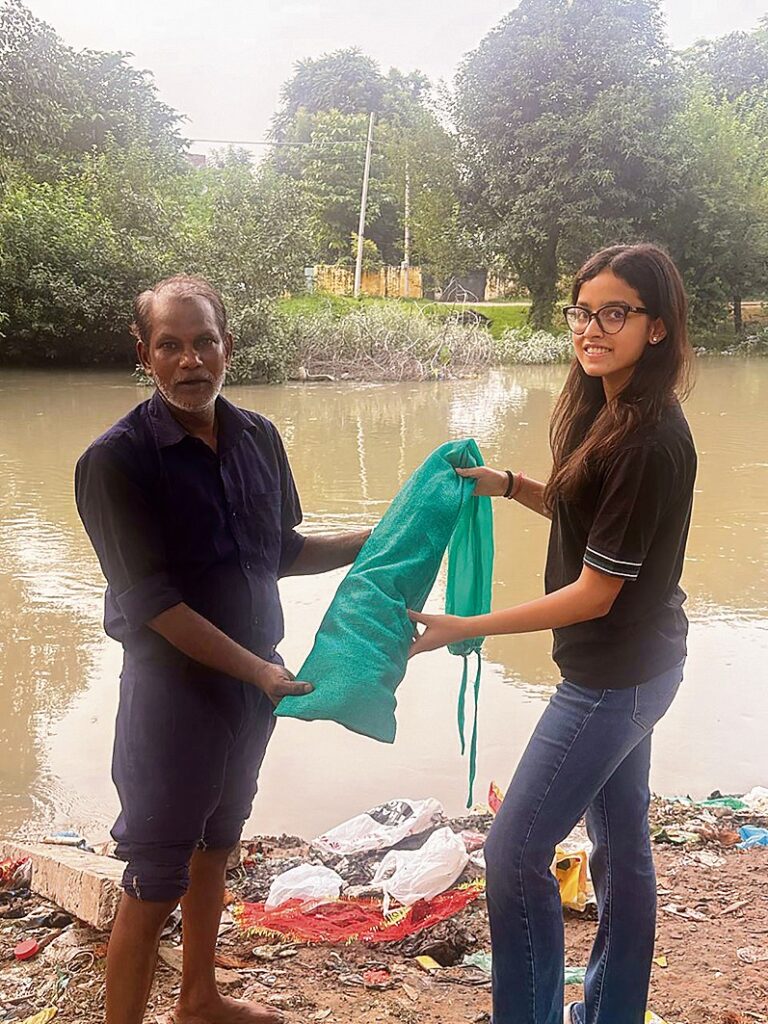Manat Samra, a city girl, has come up with a unique way to remove petroleum-based pollutants from polluted water bodies and drains. Currently studying at Jayshree Periwal International School in Jaipur, she is working on the challenge of reducing the impact of water pollution in Amritsar’s Tundab drainage canal. The 44.2 km long drainage eventually joins the Ravi. However, the presence of pollutants causes the drains to shut down late, making them the subject of environmental debate.
Manat uses human hair to make these mesh tubes, which are then dumped into drains to clean up oil-based pollutants. “For years, severely contaminated water has posed serious health risks to local populations on both sides of the border, contaminating crops, releasing dangerous levels of heavy metals, and even causing cell mutations in people living nearby. Despite the international attention, little has changed. As a local resident, I couldn’t help but come up with some solutions to reduce the impact. said.
Her methods may be unconventional, but they’re not unknown. “Hair is an adsorbent rather than an absorbent, meaning that oil effectively attaches to the hair and separates oil particles from water. Due to its lipophilic properties, it absorbs oil pollution very efficiently. 1 kg of hair can absorb up to 8 liters of oil. The natural solution lasts much longer than the currently used synthetic polypropylene, which is non-biodegradable and can be harmful in the long term. It’s possible,” Mannat explained.
After a month of collecting unwanted hair and another month of creating mesh tubes filled with unwanted hair, she is now busy implementing her project. “We plan to leave these mesh tubes in Amritsar’s waterways for the next 50 days. We will then extract them and study water samples from the drains to confirm their effectiveness. However, in countries such as Chile ‘s similar efforts have proven this method to be highly effective,” she said.

